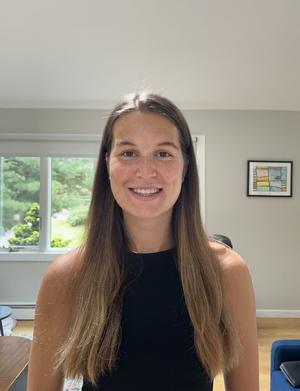Meet Harry Smith Vacation Studentship recipient: Kaia Melville

What is your name and institution?
Kaia Melville, University of St. Andrews
Please can you tell us why you applied for the Vacation Studentship?
While studying molecular biology at the University of St Andrews, I developed a strong interest in microbiology. My project in bacterial-viral coinfection allowed me to explore those interests, and develop a trajectory for the future. The Vacation Studentship, which provides funding to undergraduate students such as myself, was instrumental in supporting my research on this promising project and advancing my scientific career.
How did you feel when you found out your application was successful?
I was extremely excited to be chosen for such an amazing opportunity. I immediately began reading as many papers as I could, and volunteering in a lab nearby to hit the ground running!
How would you go about explaining your research to someone who may not understand science?
Our research tested whether virally infected cells would be more susceptible to bacterial infection. Specifically, we determined whether cells infected by varicella-zoster virus or human cytomegalovirus would be more susceptible to bacterial infection by group A streptococci (GAS). If positive, the results would imply that those with chickenpox/shingles or active cytomegalovirus (which 50-80% of people carry in a latent form) have cells that bind better to GAS surface proteins SfbI and Fbab, making them susceptible to GAS bacterial infection.
What have you learnt from your experience?
From my project, I’ve learnt how to conduct hypothesis-driven research in a lab. I’ve honed essential skills such as cell culture, protein purification, sterilisation techniques, troubleshooting, lab safety, and other crucial skills that will be incredibly useful in the future. Furthermore, working across two different labs ensured that I was organised and communicative, teaching me how to be a valuable and collaborative team member. This experience has not only strengthened my laboratory skills but also emphasised the importance of teamwork and adaptability in achieving my research goals.
How do you think this vacation will help your career progression?
This experience will allow me to seek further opportunities during the rest of my bachelor's degree and beyond. It has also guided my decision to pursue research and a future PhD in microbiology. The Microbiology Society has enabled me to pursue an invaluable research experience that has been instrumental in advancing my scientific growth. The support has allowed me to fully immerse myself in my project, facilitating hands-on learning while discovering new knowledge of the intricate connections between bacterial and viral infection.
Why is support, such as this grant provided by the Microbiology Society, so important?
The Microbiology Society has enabled me to pursue an invaluable research experience that has been instrumental in advancing my scientific growth. The support has allowed me to fully immerse myself in my project, facilitating hands-on learning while discovering new knowledge of the intricate connections between bacterial and viral infection.
